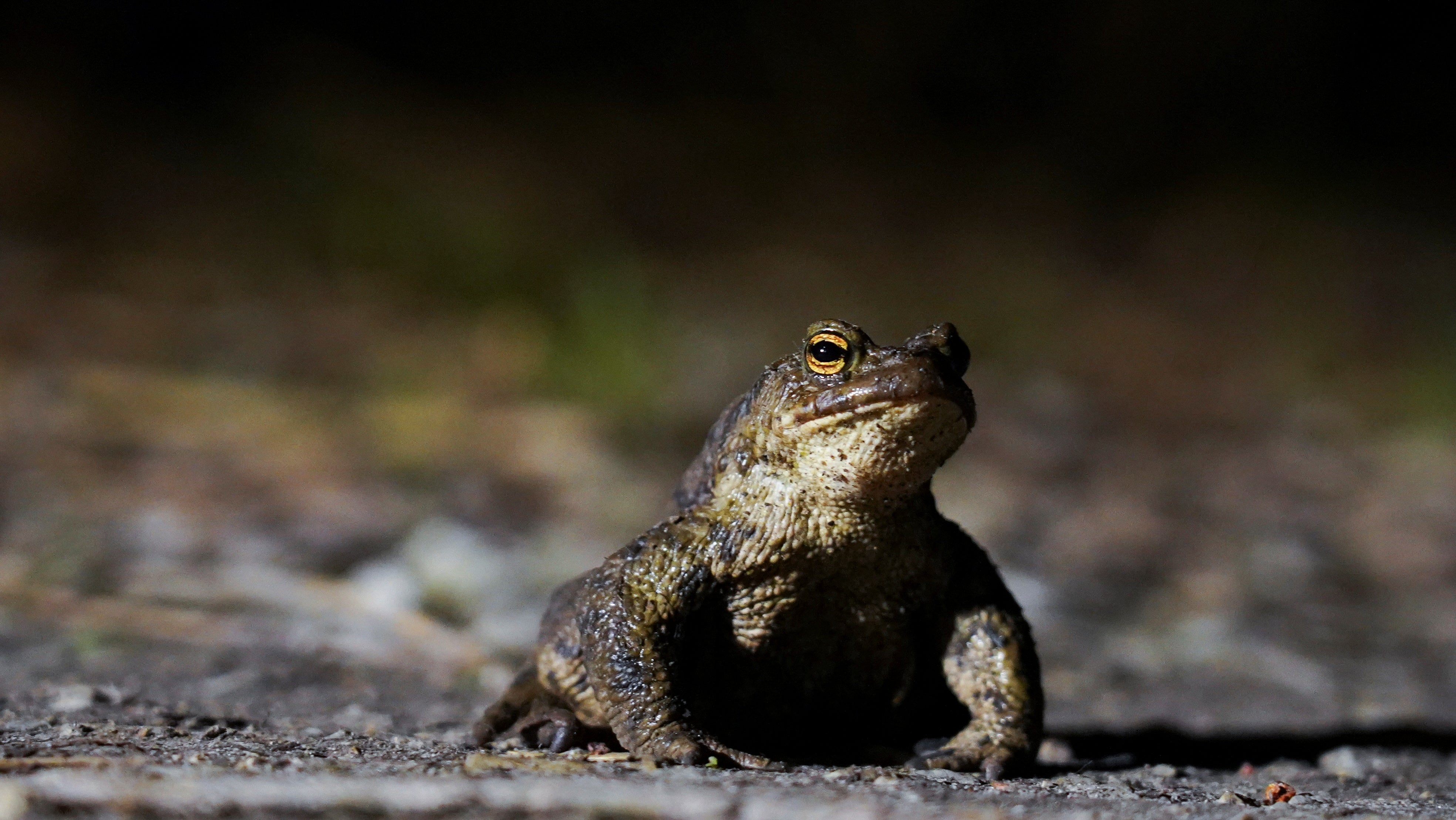Highways bosses to close road for six weeks - to allow toads, frogs and newts to cross
Road closure in the outskirts of Bath is to allow for one of the country’s major toad migration routes

Your support helps us to tell the story
From reproductive rights to climate change to Big Tech, The Independent is on the ground when the story is developing. Whether it's investigating the financials of Elon Musk's pro-Trump PAC or producing our latest documentary, 'The A Word', which shines a light on the American women fighting for reproductive rights, we know how important it is to parse out the facts from the messaging.
At such a critical moment in US history, we need reporters on the ground. Your donation allows us to keep sending journalists to speak to both sides of the story.
The Independent is trusted by Americans across the entire political spectrum. And unlike many other quality news outlets, we choose not to lock Americans out of our reporting and analysis with paywalls. We believe quality journalism should be available to everyone, paid for by those who can afford it.
Your support makes all the difference.It’s normal for a road to be closed for several weeks for utility works, pothole repairs or even police incidents - but in Somerset, highway bosses have stopped traffic to allow frogs, toads and newts to cross safely.
An 800-metre stretch of Charlcombe Lane on the outskirts of the city of Bath will close from Monday for a maximum of six weeks to allow for one of the country’s major toad migration routes.
Every year, the amphibians cross the hillside from one side of the country road to their ancestral breeding lake on the other - but passing traffic has killed many of the slow-moving animals.
In response, locals created a group called Charlcombe Toad Rescue with volunteers helping move the frogs, toads and newts, and documenting the number found alive, and dead.
The group has been boosted by the annual road closure, first implemented in 2003, with members reporting that the population of the amphibians has remained steady over the past few years after a previous fall in numbers.
The amphibians tend to move after dusk between the months of February and March - but in Charlcombe Road, they often get trapped by high stone walls, and so before the road closure volunteers equipped with buckets have been helping them.
Mike Collins, from the group, told the BBC he received a “really warm feeling and sense of achievement” by helping pregnant amphibians cross the road.
He added: “It is about taking action, and I think there is obviously so much bad news about what is happening to the natural world, I think the thousands of volunteers taking part in more than 200 toad patrols who want to make a difference. Giving nature a fighting chance of surviving.”
Last year, Charlcombe Toad Rescue reported 2,418 toads, frogs and newts made the crossing, with 77 discovered dead.
Nationally, there are 203 toad patrols, with 115,177 given a safe passage in 2023, according to amphibian charity Froglife - but there are concerns that it isn’t just traffic which is impacting the populations.
Last year, Kathy Wormald, chief executive of the charity, told the Guardian that the group had seen a steady increase in low numbers reported by the public over the past few years.
She said: “We think that the variable climate patterns, with warmer winters but then cold well into the spring months, when they would migrate to the ponds, is having an impact on their behaviour patterns.”
The Natural History Museum provides a list of ways to help the population of frogs and toads, including adding a pond to a garden or avoiding using pesticides and slug pellets.
Join our commenting forum
Join thought-provoking conversations, follow other Independent readers and see their replies
Comments